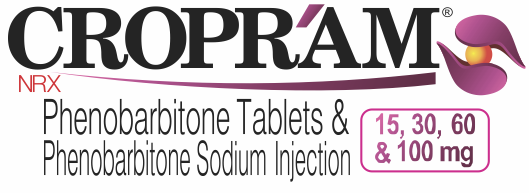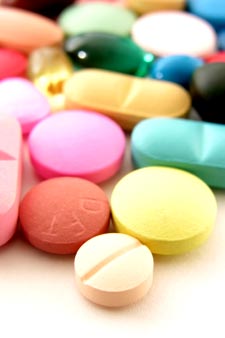|
|
OVERDOSE
The toxic dose of barbiturates varies considerably. In general,
an oral dose of 1 gram of most barbiturates produces serious
poisoning in an adult. Death commonly occurs after 2 to 10 grams
of ingested barbiturate. Barbiturate intoxication may be
confused with alcoholism, bromide intoxication, and with various
neurological disorders.
Acute overdosage with barbiturates is manifested by CNS and
respiratory depression which may progress to Cheyne- Stokes
respiration, areflexia, constriction of the pupils to a slight
degree (though in severe poisoning they may wshow paralytic
dilation), oliguria, tachycardia, hypotension, lowered body
temperature, and coma. Typical shock syndrome (apnea,
circulatory collapse, respiratory arrest, and death) may occur.
In extreme overdose, all electrical activity in the brain may
cease, in which case a ''flat'' EEG normally equated with
clinical death cannot be accepted. This effect is fully
reversible unless hypoxic damage occurs. Consideration should be
given to the possibility of barbiturate intoxication even in
situations that appear to involve trauma.
Complications such as pneumonia, pulmonary edema, cardiac
arrhythmias, congestive heart failure, and renal failure may
occur. Uremia may increase CNS sensitivity to barbiturates if
renal function is impaired. Differential diagnosis should
include hypoglycemia, head trauma, cerebrovascular accidents,
convulsive states, and diabetic coma.
----------------------------------------
If you do not have the Acrobat Reader installed on your computer,
download the plug-in and simply follow the instructions for
installation. It is available without charge from Adobe®.com.
This link is provided as a convenience. Taj Pharma is not
responsible for the content of this linked page.
 |




